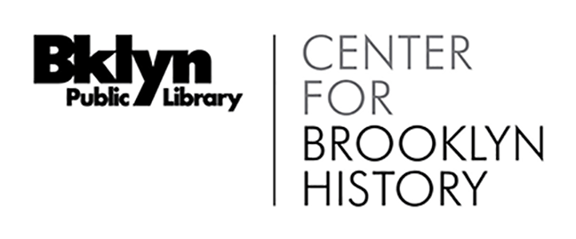History of Coney Island: Lists and Photographs of Main Attractions viewbook
Call Number
Date
Creator
Extent
Language of Materials
Abstract
Images included in the viewbook consist of views of attractions and performers at Steeplechase Park, Luna Park, and Dreamland, as well as views of Surf Avenue.
Historical note
Coney Island is an oceanfront neighborhood located in Southwest Brooklyn that is adjacent to the neighborhoods of Sea Gate to the West and Brighton Beach to the East. Coney Island became known as a destination as early as 1824 when the first oceanfront resort, the Coney Island House, opened. After the American Civil War ended in 1865, the development of Coney Island progressed quickly due to the opening of train lines that connected Southwest Brooklyn to the more populated areas of Brooklyn and beyond. The accelerated development of Coney Island brought seasonal businesses, as well as more visitors. Between 1897 and 1904, three amusement parks opened along the main street closest to the ocean in Coney Island, Surf Avenue. In 1897, Steeplechase Park, filled with shows and rides such as the Steeplechase Horses, the Human Roulette Wheel, and the Blowhole Theater, opened to the public. Luna Park was the next to open in 1903, offering attractions such as the Trip to the Moon, the Helter Skelter Slide, and the Dragon's Gorge, as well as a lavish nighttime setting illuminated by thousands of electric lights. By 1904, Luna Park was pulling in a daily attendance of 90,000 people during its busy season. Also in 1904, Dreamland opened to the public. Dreamland differed from the other two parks in that it featured attractions inspired by international destinations such as the Japanese Tea Garden and the Fall of Pompeii, as well as a lagoon surrounded by an enormous hippodrome and rides such as the Haunted Swing and Shooting-the-Chutes. In 1911, Dreamland suffered a major fire that destroyed most of its attractions and killed many of the animals that were used in its shows. The park closed soon after.
In 1920, the subway was extended to Coney Island which helped to transport an average of one million visitors per weekend to Coney Island's amusement parks and public beaches during its busy summer season. In 1924, a 2.51 mile boardwalk opened (officially called the Riegelmann Boardwalk) that extended from Sea Gate to Brighton Beach. In 1944, Luna Park suffered a major fire and closed. During the 1940s and 1950s, New York City Parks Commissioner Robert Moses changed the scale and focus of Coney Island by widening its beaches, getting rid of many of its older attractions, building a municipal aquarium and skating rink, and supporting the rezoning of much of the area for residential use only. Astroland, the space age-themed amusement park, opened in 1962, filling in some of the gaps left behind with the closing of Dreamland and Luna Park. In 1964, the last remaining original amusement park, Steeplechase Park, closed. Astroland too was closed in 2008. As of 2011, Coney Island still has an amusement district, but on a much smaller scale than in its heyday. Several rides have survived, in part, due to their National Historic Landmark status, including the Wonder Wheel, the Cyclone roller coaster, and the Parachute Jump. A new version of Luna Park opened in May of 2010, but much of Coney Island's beachfront property is still in dispute between the city, local residents, and real estate developers.
Burroughs & Co. was a publisher based in New York City. Their office was located at 29 Broadway in Manhattan. Viewbooks, also called souvenir albums or view albums, are books that contain commercially published groups of photographs depicting a place, activity, or event.
Sources:
- Getty Research Institute: Art & Architecture Thesaurus. "Viewbooks." Accessed June 27, 2011. http://www.getty.edu/vow/AATFullDisplay?find=viewbooks&logic=AND¬e=&english=N&prev_page=1&subjectid=300026684
- Bradley, Elizabeth. "Coney Island." In The Encyclopedia of New York City, edited by Kenneth T. Jackson, 299-301. New Haven, Conn.: Yale University Press; New York: New-York Historical Society, 2010.
Scope and Contents
The History of Coney Island: Lists and Photographs of Main Attractions viewbook contains biographical information on people who shaped Coney Island, historical information, and black-and-white non-photographic prints of photographs and drawings of Coney Island. Images included in the viewbook consist of views of attractions and performers at Steeplechase Park, Luna Park, and Dreamland, as well as views of Surf Avenue. Images and descriptions documenting attractions and rides at Coney Island that were not part of the three amusement parks are also included. The original softcover of the viewbook has been recovered with a hardcover library binding and page size is 5 x 7.5. The viewbook was published in 1904. The pages of the viewbook are brittle and have separated from the binding. Digital versions of the images from the viewbook are available via the image database located in the library.
Subjects
Organizations
Genres
Topics
Conditions Governing Access
Open to researchers without restriction.
Conditions Governing Use
Reproduction rights for the images from the viewbook have not been evaluated. For information on securing rights to publish or reproduce, please see the Brooklyn Historical Society Reproduction Rights Policy.
Preferred Citation
Identification of item, date (if known); History of Coney Island: Lists and Photographs of Main Attractions viewbook, V1986.022, Box number, Object ID number; Brooklyn Historical Society.
Immediate Source of Acquisition
Source and date of acquisition for this collection are unknown. The collection was formally accessioned in 1986.
Other Finding Aids
Item level description and digital versions of images from the collection are available for searching via the image database in the library. Please consult library staff for more information.
About this Guide
Processing Information note
Fully processed to the item level.
